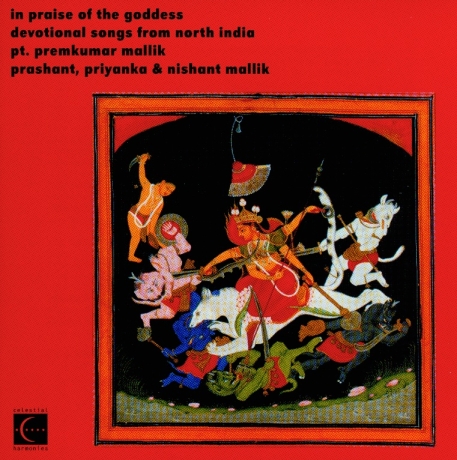 |
||||||||||||||||||
 
The Asia Pacific Journal of Anthropology/ vol. 9, no. 4 (December
2008) (.pdf)
the projectIn no other living religious tradition of the world is the veneration of goddesses — or rather, different aspects of the mother goddess — as important as in India. Since its earliest beginning, a major part of the Indian pantheon consists of females who play a special role in transmitting values which cannot be reciprocated by their male counterparts, reaching from graceful and nourishing aspects to the darker and more dangerous realms of the human psyche. The Mallik family — founded by the saintly singers Rashakrishna and Kartaram in the second half of the 18th century — has an unbroken history of venerating the mother goddess in all her different aspects. The songs featured on this CD — examples of a vast body of compositions transmitted in the family — provide ample proof of this long-lasting tradition. The collection of songs on this CD is centered on Durga, the
most venerated goddess in the Hindu Pantheon. She is regarded
as the Shakti, the essence and counterpart of all the male divinities.
When the buffalo demon Mahisasura threatened to destroy the world,
Durga was born from the fire emanating from the mouths of the
gods. Due to her slaying of the demon which earned her the title
of Mahisasuramardani, she is regarded as the saviour of the universe.
All other aspects of the primeval mother goddess are born This recording, and Goddess: Divine Energy (13266-2) were inspired by and produced for GODDESS: divine energy - A major exhibition exploring the myriad imaginative expressions of divine female power in the art of India and the Himalayas at the Art Gallery of New South Wales in Sydney (13 October 2006 - January 2007) in cooperation with Radio Berlin Brandenburg (RBB), Berlin Germany. This recording was produced by Peter Pannke. tracklist
|
||||||||||||||||||
|
|
||||||||||||||||||
 |



